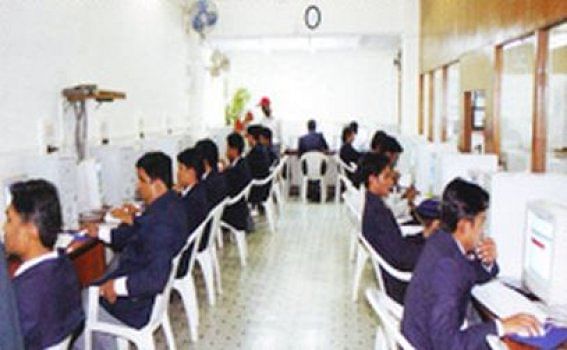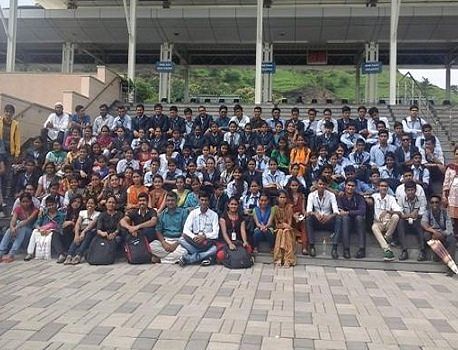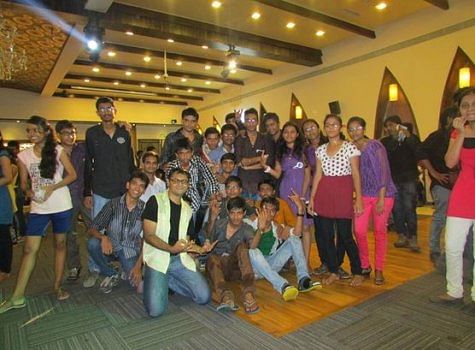MBS Syllabus and Subjects

MBS syllabus can differ for the students based on the specialisation that the students decide to pursue. MBS subjects are spread across four semesters. The Master in Business Studies subjects is designed to give the students a deeper understanding of the course and specialisation they choose to pursue.
Semester Wise MBS Syllabus
The MBS subject list differs according to the specialisation that the candidates decide to pursue. With every specialisation, the subjects in MBS courses differ, as the primary focus topics change. The MBS 1st year syllabus primarily focuses on the foundational subjects related to the field of business studies.
The MBS course introduces students to all the vital information they need. Listed below are the syllabi of MBS according to the semester which is the core subject and therefore, tends to be the same across the board.
MBS First Year Syllabus
The table below contains the list of MBS subjects in the first year:
|
Semester I |
Semester II |
|
Principles & Practice of Management |
Human Resource Development |
|
Business Economics |
Management Accounting |
|
Organizational Behaviour |
Quantitative Techniques-Operational Research |
|
Business Finance & Accounting |
Production & Operations Management |
|
Quantitative Techniques |
Marketing - II |
|
Marketing-I |
Business Law |
|
Computing & Web Technology |
Logical Analysis, Programming & Visual Basic |
MBS Second-Year Syllabus
The table below contains the list of MBS subjects in the second year:
|
Semester III |
Semester IV |
|
International Business Management & Laws |
Indian Business & Economic Environment |
|
Research Methodology |
Business Ethics |
|
Management Information System |
Project Work |
|
Business Policy & Strategic Management |
Marketing Specialisation |
|
Marketing Specialisation |
Export Marketing |
|
Supply Chain & Logistic Management |
Marketing Research |
|
Advertisement & Sales Distribution Management |
Services Marketing |
|
HRD Specialisation |
HRD Specialisation |
|
Industrial Relations & Labour Laws |
Management Consultancy |
|
Personnel Administration & Disciplinary Proceedings |
Training and Organisational Development |
|
IT Specialisation |
Case Studies in HRD and Labour Laws |
|
Object Oriented Analysis Design and DHTML |
IT Specialisation |
|
Core Java with JDBC |
RDBMS with Oracle |
|
Dual Specialisation Marketing + IT |
Business Intelligence |
|
Supply Chain & Logistic Management |
Dot Net Techniques |
|
Advertisement & Sales Distribution Management |
Dual Specialisation(Mktg. + IT) |
|
HRD + IT |
Services Marketing |
|
Industrial Relations & Labour Laws |
Business Intelligence |
|
Personnel Administration & Disciplinary Proceedings |
- |
MBS Subjects
MBS subjects are dependent on the specialisation that the aspirants decide to pursue. MBS subjects are decided based on the core topics in business studies, as well as the topics in the specialisation. MBS subjects are divided into core and elective subjects. The elective subjects are optional subjects that make the course flexible and diverse.
MBS Core Subjects
The core MBS subjects list contains essential subjects that all MBS students study irrespective of their specialisation, which is as follows:
- Management Information System
- Business Policy & Strategic Management
- Marketing Specialisation
- Supply Chain & Logistic Management
MBS Elective Subjects
Given below are the elective subjects that the students study:
- Dual Specialisation Marketing + IT
- Supply Chain & Logistic Management
- Advertisement & Sales Distribution Management
- HRD + IT
- Industrial Relations & Labour Laws
- Personnel Administration & Disciplinary Proceedings
MBS Course Structure
The MBS course structure consists of both core and elective subjects. The course is a four-year-long postgraduate course, divided into six semesters. From the third semester onwards, students are introduced to specific subjects related to their specialisation. The course structure is:
- IV Semesters
- Core Subjects
- Postgraduate Course
- Research Project
MBS Teaching Methodology and Techniques
MBS teaching methodology and techniques encompass traditional lecture-based training. The traditional classroom teaching methods allow the students to ask the queries they might have and get answers to them.
The course has teaching methodologies and techniques designed to ensure that the students pursuing this course have access to all the infrastructure and facilities available. Listed below are the teaching methodology and strategies in general:
- Lectures
- Practical Sessions
- Research Papers
- Seminars
- Group Discussions
- Traditional Classroom-Based Teaching
MBS Projects
When pursuing a Master in Business Studies course, research projects are an integral part of the studies. MBS projects are assessed by the professors to judge the student's understanding of the subjects.
Students can choose their project topics based on the specialisation they choose to pursue. Some of the popular research projects are listed below:
- Business Management
- Operations Management
- Advertisement
MBS TextBooks
When pursuing an MBS, books can be a great investment for the students as they can really help them learn about their specialisation in great detail. Books can be a source of information for the students whereby they can further learn about topics of their interest.
Students can rent out reference books from libraries, download them online or purchase them. Listed below are some of the popular MBS course books that the students can invest in:
|
Name of Book |
Author |
|
Human Resource Development |
Rakesh Kumar Sadan and Minakshi Sharma |
|
Management Accounting |
Dr. S.P. Gupta and Dr. K.L. Gupta |
|
Web Technology: A Computer Science Perspective |
Jeffrey Jackson |
|
Principles and Practice of Management |
LM Prasad |
|
Encyclopaedia of Business Ethics & Society |
Robert W. Kolk |









